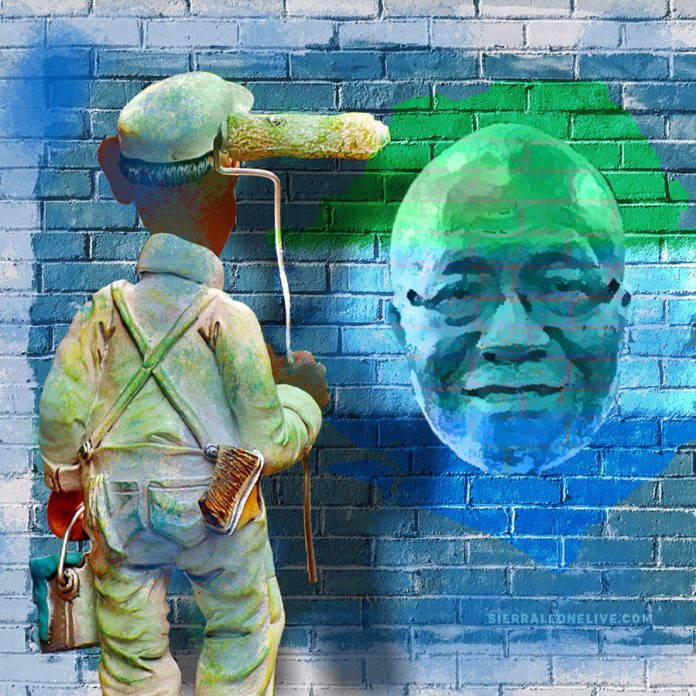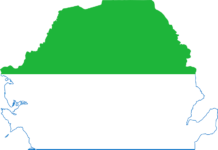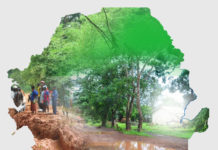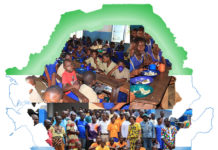
In a recent television interview, the governor of Thampèreh’s central bank came out of the closet. He confessed that he could not impregnate the needed economic baby in the village. Not that it came as a surprise considering the many mishaps the grandpa professor has made since taking up the central bank’s affairs, but the bold admission opened up the debate on why he was there in the first place.
The bank governor’s confession, followed by an apology to the people of Thampèreh, would have, under normal circumstances, paved the way for his immediate replacement. In his words, he said, “I also want to tell the people of this village that I am gravely sorry that I am in a situation where I know we are all hurting, but I don’t have the capacity to get rid of that hurt.”
His words sounded like a person who claims to be a certified surgeon. Then he takes up the post of the chief surgeon in the village’s most prominent hospitals. After cutting up several patients open without even applying anesthetics, he stands up, holding his tools, and tells them he knows they are hurting. Still, he just doesn’t have the capacity to perform surgeries and get rid of their pains. Worse, instead of resigning and allowing a competent doctor to take over to save lives, he stands comfortably with his tools and continues cutting the bodies of his patients. And the CEO of the hospital does nothing. He remains proud of this incompetent and imposter doctor.
But the incapacity of the bank governor is a reflection of the Painter’s impotence.
Since taking office, the Painter projected several imaginary colours of development and hope. To his credit, his administration is transforming sections of the village’s education, invested in some parts of the health system, and developed favourable policies in the mining sector that would allow villagers to begin to benefit from its verse mineral resources finally.
And while these are significant steps, his other aspects of human capital development are nothing but projects written for the shelves. His agriculture and food security remain a dream enveloped in nightmares. Shortly after taking office, he launched a progressive initiative inviting all villagers to engage in agriculture, starting with himself and his ministers. He posed in large farms with machines and took photos accompanied by colourful videos and enticing soundtracks, saying if he could do it, then everyone else should. But beyond the images and videos during the planting season, no one saw his harvests or knew what became of the farms. Even the gimmicks of farming were a one-time thing. He abandoned the calls for a national food security drive even before getting started.
On infrastructure, his much-lauded Office of Painter Infrastructural Initiative, the OPII, can hardly boast of major infrastructural projects since its establishment. The OPII echoed sounds of building the Lungi bridge, extending the current airport, constructing a new financial city in Lungi, a rail network system for Thampèreh, a coastal highway, the Bonthe Seaport, the Bonthe Special Economic Zone, and the Bonthe Industrial Zone. Apart from photos of the designs, the only major project underway is the airport extension project, whose terms are shrouded in secrecy.
Even though many doubted his ability to transform Thampèreh right before being elected, the Painter’s coming to power came with renewed hope among ordinary villagers. They badly yearned for a saviour to take them from the decades of hardship, human right abuse, indiscipline, corruption, and the like.
Instead, the Painter spent his first moon circles in office, blaming the opposition for the mess they left behind. Then he shifted his blame to the Covid-19 outbreak in the second and third moon circles. The fault is now on Russia for Putin a conflict in Ukraine. The excuses and lack of taking responsibility persist as poverty and the cost of living continue to fly over the roofs of villagers.
Now, as he walks around, most villagers can already see an impotent Painter incapable of impregnating development and transformation in the belly of Thampèreh. The New Direction he promised only reflects on him and his cronies. That is why his bank governor’s statement saying he knows “we are all hurting” is even more hurtful to the people than the pain he caused to the village’s economy. For a man who collects a hefty salary every moon and goes on state-sponsored holidays wherever he wishes, including laying his incapacitated hands on the backs of lions, “hurting” should be the last of his vocabularies in the village of Thampèreh.
There are also rumours that since the governor laid his hands on those innocent lions, their lives have been crumbling like Thampèreh’s economy. But those are just rumours.
The Painter is seeking a second term to do better while maintaining and recycling the same people and doing the same thing. Many villagers are now asking if the bank governor could still hold such a vital position in the village despite his bold admission of not being capable of proffering solutions; will the Painter be better in his second term after a terrible first term? Will the Painter eventually take responsibility and confess his impotence? Or will he spend his second term casting blames as he did during his first term?




